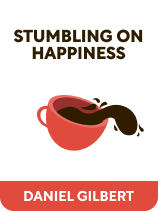

This article is an excerpt from the Shortform book guide to "Stumbling on Happiness" by Daniel Gilbert. Shortform has the world's best summaries and analyses of books you should be reading.
Like this article? Sign up for a free trial here .
When you need to make a difficult decision, can you trust your memory to guide you to the right choice? Will relying on past experiences help you make better choices in the future?
According to Daniel Gilbert, a researcher in social psychology, you can’t trust your memories to help you make better decisions for the future. There are three reasons for this: you don’t remember common experiences, you tend to remember only how things end, and you remember how you should have felt rather than how you actually felt.
Here’s an overview of how your memory misrepresents your past.
Trying to Make Better Choices Using Memories
Can you trust your memory to help you avoid bad decisions? You might be tempted to think that you can use your memory of past poor choices to make better decisions about the future, writes Gilbert. But this is impossible because your memory is faulty in several ways we’ve already discussed: It’s made up of snippets of an experience, not the experience itself, and you constantly rewrite memories based on new information. This means that you rely on fabricated memories when trying to correct decisions, which leads to poor outcomes.
Your memory misrepresents the past and keeps you locked in a cycle of making poor choices about your future in three specific ways:
Error #1: You Remember Uncommon Experiences More Than Common Ones
First, you believe that extraordinary events in your past are more likely to reoccur than they are, writes Gilbert. This means you base decisions on the expectation that extraordinary events will happen when they probably won’t.
You believe this because your mind recalls memories of extraordinary occurrences more readily than ordinary ones, claims Gilbert. Ordinary events and outcomes—like taking the train and arriving at work without incident—happen all the time, so your mind doesn’t register them as vividly as uncommon events and outcomes—like taking the train and being re-routed to a different city. You therefore overestimate the frequency and dominance of extraordinary events.
This means that when weighing a decision about the future, writes Gilbert, you’ll more readily recall unique, extraordinary instances in the past when the option that normally doesn’t make you happy, did make you happy. Based on this selective memory, you’ll therefore choose the option that probably won’t make you happy, thinking it’s more likely to generate happiness than it really is.
Here’s an example: You subscribe to a monthly wine delivery service and can choose between Plan A, which offers a high variety of wines, or Plan B, which offers a low variety of wines but more wines you enjoy. You’re currently on Plan A, and you need to decide whether to stay on this plan or switch to Plan B.
You have many memories of not enjoying the high variety of Plan A and wishing you’d picked the consistency of Plan B. But when deciding which plan to continue with, your mind will favor a memory of an extraordinary instance in which you preferred the high variety of Plan A. Your mind won’t rely on the ordinary majority of your memories in which you disliked high variety. Therefore, despite your intention to correct your decision-making, you still make a poor choice by re-selecting Plan A based on your more easily recalled yet extraordinary memory of enjoying it on one occasion.
| Using Uncommon Experiences and Overcomplicated Considerations Gilbert claims that because your mind highlights memories of strange occurrences over commonplace ones, you believe strange events are more likely to occur in the future than they really are. You therefore base your choices about the future on uncommon past events. In Thinking, Fast and Slow, Daniel Kahneman describes a similar way your brain triggers poor decisions: by overcomplicating those decisions. Rather than relying on straightforward information and simple considerations—tantamount to using memories of commonplace occurrences to inform our choices—we give more weight to unimportant factors and favor complicated considerations over simple ones—which is similar to using unusual, extraordinary memories to inform our choices. In this way, when considering which wine delivery plan to get, you might use unimportant factors and make a complicated consideration by thinking: “If I have a big dinner party next year, I’ll need a wide variety of wines. And because I normally don’t drink wine in the summer, I’ll probably want to give away many bottles to friends during that time. I should, therefore, opt for Plan A.” (This complicated consideration could even be based on a memory of a past extraordinary instance in which you did have a big dinner party and required a variety of wines, or one unusual summer in which you gave a lot of wine away.) It would be better, Kahneman would argue, to simply think about what wine you like and then purchase the plan that has the most of that wine. |
Error #2: You Remember the End of Experiences More Than the Rest
Another reason Gilbert says you can’t rely on memories to correct your decision-making is that you remember the ends of experiences more than the bulk of experiences. This means you look at a narrow piece of an experience—the end—to inform your decision on whether or not to pursue the whole experience again. If the end doesn’t reflect the overall experience, you make the same mostly-poor choices again and again, laments Gilbert.
For instance, if you went on an amusement park ride that you mostly disliked but which had a great final loop, you might go on the ride again because you recall only the final loop and not the bulk of the ride. This is a poor decision because you disliked the vast majority of the ride: Back on the ride, you’ll wonder why you thought it would be a good idea to do it again. When you get off, though, you’ll once again only recall the great final loop, and this will again lead you back to the mostly-average ride.
(Shortform note: The fact that you remember the end of an event more strongly than the bulk of the event means you can build more happiness into your life by manually improving the ends of experiences. For instance, you might salvage a bad dinner out with friends by going out dancing afterward. Going forward, you’ll remember the great time you had dancing more than the bad dinner, making your memory a generally happy one. You can also use this knowledge to urge yourself through the low points of an experience to get to the payoff. Rather than writing off a bad dinner and heading straight home, stick it out: You can still create a happy memory by ending on a high note.)
Error #3: You Remember How You Should Have Felt, Not How You Really Felt
The final reason your memories can’t help you correct your decision-making is that you reconstruct memories to reflect how you think you should have felt at the time rather than how you did feel, says Gilbert. This means you don’t remember your true emotional reaction to an event and can’t learn from it.
Here’s an example: You hated going to your sister’s wedding. However, you believe that you should enjoy weddings because everyone enjoys weddings. Therefore, you’ll falsely remember yourself as having been happy at the event. This prevents you from correcting your decision-making in the future, and you’ll RSVP “yes” to another wedding that will, in reality, not be fun for you.
(Shortform note: One way to better remember how you truly felt, rather than how you believe you should have felt, is to journal about your feelings. By noting down when you’re having an intense emotional reaction to an event and what, specifically, you’re feeling, you create a reliable historical account of your feelings to which you can later refer and learn from. Journaling can even help you make sense of your feelings if you’re confused or overwhelmed about an event. This further reduces the chances that you’ll misremember or misinterpret how you felt about that event later.)

———End of Preview———
Like what you just read? Read the rest of the world's best book summary and analysis of Daniel Gilbert's "Stumbling on Happiness" at Shortform .
Here's what you'll find in our full Stumbling on Happiness summary :
- A look at how your brain fabricates your reality leading you to make bad decisions
- The six specific types of bad choices people make
- How to improve your decision-making in the future






